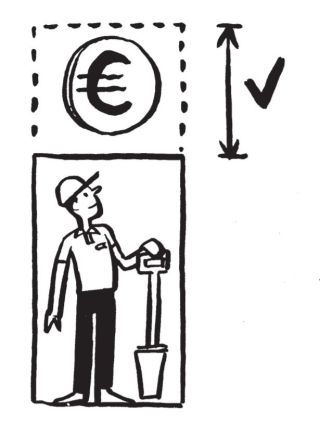Substantial portion of workers cannot achieve a socially acceptable standard of living

The latest CSO figures show that 122,800 Irish workers earn the minimum wage or less, far below what is required for a socially acceptable standard of living in Ireland.
While acknowledging that the current employment situation in Ireland bears no resemblance to that of the end of 2019 when this survey was carried out, it is still worth noting that during what constitutes ‘normality’ in the Irish economy, more than 120,000 were earning the bare minimum that employers scan get away with paying. We also know that around 110,000 people in Ireland live in poverty despite having a job.
While Social Justice Ireland welcomes the fall in the proportion of employees earning the minimum wage or lower, it still should be noted that despite very welcome increases in the National Minimum Wage in the last few years, it remains about 18 per cent below the Living Wage. Also worth noting is that while the CSO currently estimates that around 120,000 employees are earning the minimum wage or less, previous studies suggest that up to twice as many people again may be earning more than the minimum wage but less than the living wage.
The Living Wage is defined as the hourly rate a single adult working 39 hours a week must earn in order to achieve a socially acceptable standard of living in Ireland. In July 2019, it was calculated as being €12.30 per hour. The current National Minimum Wage is €10.10 per hour. Ireland has a significant issue with low pay, with a far greater prevalence of low paid employment than most of our European peers.
The issue of low-pay is likely to be even more important after Covid-19 as many of the sectors that will likely be slowest to restart (retail, hospitality, etc) are also the sectors with the highest proportions of employees on low-pay. People are more likely to earn the National Minimum Wage if they are younger, female, working part-time, have low levels of education, or work in sectors of the economy that are well known to have a high concentration of employees in low pay, e.g. retail, and the accommodation and food sector.
It is long past time that government tackled this issue, and Social Justice Ireland warmly welcomes the inclusion of a goal to equalise the National Minimum Wage and the Living Wage within the next term of government in the Fine Gael-Fianna Fáil draft document for framing government negotiations. There should also be a complementary goal to make the two main Income Tax Credits refundable to help mitigate the issue of in-work poverty.

GIVING A VOICE TO THOSE
WHO DON’T HAVE A VOICE
When you support Social Justice Ireland, you are tackling the causes of problems.
